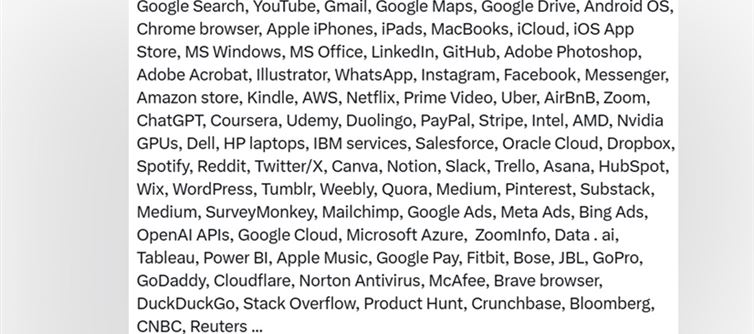
A proactive tweet on X has stirred significant online discourse, proposing a one-week boycott of American goods as a countermeasure to the United States' recent tariff experiments. The post suggests that while the USA is imposing tariffs, india should respond with a simple yet symbolic boycott of popular American fast-food chains such as KFC, McDonald's, and pizza Hut. Presented as "just a thought," the idea taps into a growing sentiment of economic nationalism, urging indian consumers to leverage their purchasing power to signal displeasure with U.S. trade policies. With nearly 290,000 views, the tweet has clearly struck a chord, reflecting a desire among some to assert economic sovereignty in response to global trade dynamics.
The proposal comes amid heightened tensions in international trade, particularly with the USA’s recent moves to impose reciprocal tariffs, which have been reported to impact India’s export sectors significantly. Iyengar’s suggestion to target American fast-food giants like KFC and McDonald's—operated in india by franchises such as Sapphire Foods—highlights a strategic focus on consumer-facing brands that are deeply embedded in urban indian culture. This selective boycott, limited to a week, is framed as an experiment, implying a test of public willingness to sacrifice convenience for a broader economic statement. However, the tweet’s casual tone and specific examples raise questions about the feasibility and effectiveness of such a move, especially given the reliance of these chains on local employment and supply chains, which could complicate the narrative of a purely anti-American stance.
The reaction to the tweet, as seen in subsequent posts and replies, reveals a mix of support and skepticism. While some users, like sandeep Manudhane, have expanded the boycott idea to include a vast array of American tech and service platforms (e.g., Google, apple, and Amazon), others have pointed out the irony of advocating such a boycott on an American-owned platform like X. Critics argue that the proposal is selective, targeting goods Iyengar might personally avoid (e.g., fast food, potentially due to dietary preferences), while overlooking the deeper integration of American technology and services in daily indian life.
The proposal comes amid heightened tensions in international trade, particularly with the USA’s recent moves to impose reciprocal tariffs, which have been reported to impact India’s export sectors significantly. Iyengar’s suggestion to target American fast-food giants like KFC and McDonald's—operated in india by franchises such as Sapphire Foods—highlights a strategic focus on consumer-facing brands that are deeply embedded in urban indian culture. This selective boycott, limited to a week, is framed as an experiment, implying a test of public willingness to sacrifice convenience for a broader economic statement. However, the tweet’s casual tone and specific examples raise questions about the feasibility and effectiveness of such a move, especially given the reliance of these chains on local employment and supply chains, which could complicate the narrative of a purely anti-American stance.
The reaction to the tweet, as seen in subsequent posts and replies, reveals a mix of support and skepticism. While some users, like sandeep Manudhane, have expanded the boycott idea to include a vast array of American tech and service platforms (e.g., Google, apple, and Amazon), others have pointed out the irony of advocating such a boycott on an American-owned platform like X. Critics argue that the proposal is selective, targeting goods Iyengar might personally avoid (e.g., fast food, potentially due to dietary preferences), while overlooking the deeper integration of American technology and services in daily indian life.




 click and follow Indiaherald WhatsApp channel
click and follow Indiaherald WhatsApp channel